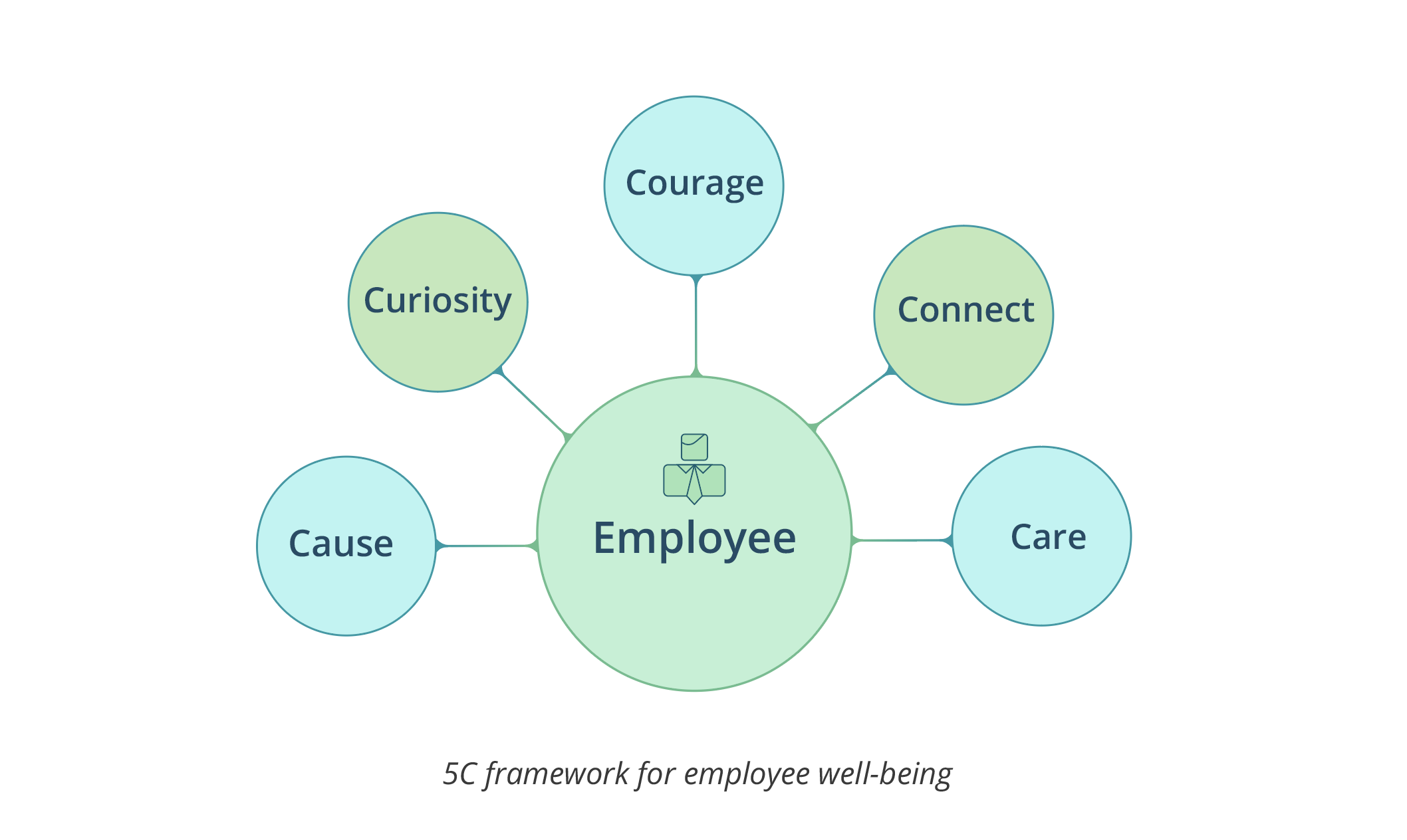Nikhil’s strong conceptual and implementation knowledge on business processes across domains, makes him a vital catalyst to driving IT-enabled transformational initiatives. As a thoughtful leader, he is passionate about formulizing services and solutions by leveraging disruptive technologies to create differentiated delivery models for accelerating business outcomes.
As the world recovers from the pandemic and adapts to new ways of functioning, the global business community is faced with the glaring challenge of large-scale attrition. Labelled as the ‘Great Resignation’, employees are quitting in pursuit of alternative roles and new opportunities. The key motivation behind this mass exodus is that the psychological contract between an employee and employer is different than what it used to be. An employee usually stays with an enterprise due to three primary reasons – right compensation, good work, and supporting environment. However, these have become table stakes now. Expectations have evolved. Further, with remote workplaces and hybrid working models becoming commonplace, engagement levels are taking a hit and employee retention is becoming a bigger concern.
To inculcate a sense of belonging, enterprises need to proactively implement new rules of engagement through a 5C framework. This incorporates a set of meaningful retention strategies that will help businesses adopt a more holistic approach to employee success. Enabling these strategies will not only ensure the professional well-being of an employee but will also help a business grow the right way. And the good news is, you don’t even need to break the bank.
Support employee well-being with 5C framework

Lead with a cause – First and foremost, to keep employees motivated, it is crucial for businesses to establish the clarity of purpose. Give them a cause they can relate to. Leadership teams must trickle down the corporate goals and missions to every individual. Instead of micromanaging them with a ‘what to do’ guideline, employees could be led with a ‘where to go’ approach. With more millennials joining the workforce, it helps to make them understand and visualize the bigger picture. As global citizens, enterprises must also invest in collaborative Corporate Social Responsibility (CSR) programs to encourage employees to give back to the society. Such initiatives enable employees to attach deeper meaning to their association with an employer and infuse better engagement. An ecosystem that works on open and clear communication with a well-defined cause, always delivers greater impact.
Feed the curiosity – Once a cause is established, an enterprise must evaluate avenues to foster a learning environment to groom mentors and decision makers of tomorrow. The novelty of any job wears off soon if it ends up becoming a muscle memory. Therefore, employees must constantly learn, unlearn, and relearn to stay relevant. Leaders need to provide challenging and meaningful opportunities to employees. It is crucial for an enterprise to invest in a good Learning Management System (LMS) to keep track of the overall knowledge quotient and address gaps, wherever necessary. Individualized training programs, free access to learning platforms, frequent hackathons, and workshops, along with investing in pet projects, are some of the steps that businesses can implement to ensure employee curiosity.
Promote courage – Just enabling employees with new skills is not enough. Enterprises must allow them the opportunities to think like entrepreneurs. Create a judgement-free workplace built on trust and collaboration. This helps employees to be courageous enough to innovate and learn from failures. They should be allowed to become calculated risk-takers and not shy away from taking chances due to fear of uncertain outcomes. It is important to educate the employees to fail fast and fail forward to help them quickly adapt to changes. In such a positive attitude enforcing environment, employees feel motivated to take on new responsibilities with a sense of ownership. Leaders and senior members of a team must welcome new ideas and share real-time constructive feedback to help breed confident leaders.
Connect to recognize – Another critical aspect of engagement is to establish a strong employee-manager relationship through continuous feedback and appreciation. If this relationship is fractured, then nothing else, not even attractive compensations, can persuade employees to perform well or stay. In fact, sometimes unfairly rewarding a behaviour might end up generating undesirable outcomes. Managers also need to connect with their direct reports regularly to share appreciation and honest feedback real-time and not wait till end of the year or connect only when things go wrong. Employees stay when they are heard, understood, and validated. Celebrate small milestones more often and encourage team collaboration through fair incentivization. These steps, together, will encourage better connection for building a merit-based evaluation culture.
Demonstrate care – Last, but not the least, cultivate a culture of care, where employees are happy and actively invested in the physical and mental well-being of each other. Design policies and benefits to instill empathy and promote breathing space for individuals to ensure a good work-life balance. Post pandemic, most of the employees now value a flexible work environment over other perks. Care must be the cornerstone of corporate strategies to factor in adjustments to employee benefit plans for accommodating this new reality. These are the times when an employee needs maximum support to maintain health and safety.
How to evaluate the framework
Once, these 5 Cs are implemented, it is crucial to closely monitor and measure the engagement levels. The easiest way to do this, is to trigger monthly or quarterly surveys to find the effectiveness of these interventions. But for a more real-time evaluation, it is advisable to mobilize a continuous feedback channel. This will help the monitoring teams to tweak the strategies for better outcomes.
Happy employees. Happy enterprises.
This pandemic has exposed some unique vulnerabilities of businesses that we didn’t even know existed. Reversing the effects of the “Great Resignation” will require huge effort and deliberation. A business behaves as its employees deliver. Every individual is hungry to go beyond the norm and create something spectacular. However, it is the responsibility of enterprises to create such an environment where an employee can feel valued and appreciated and is empowered to excel and innovate. We are progressing, as a global economy, towards a world that thinks and creates better, and it is about time that we nurture the living nucleus of this global ecosystem with thoughtful support and opportunities.


